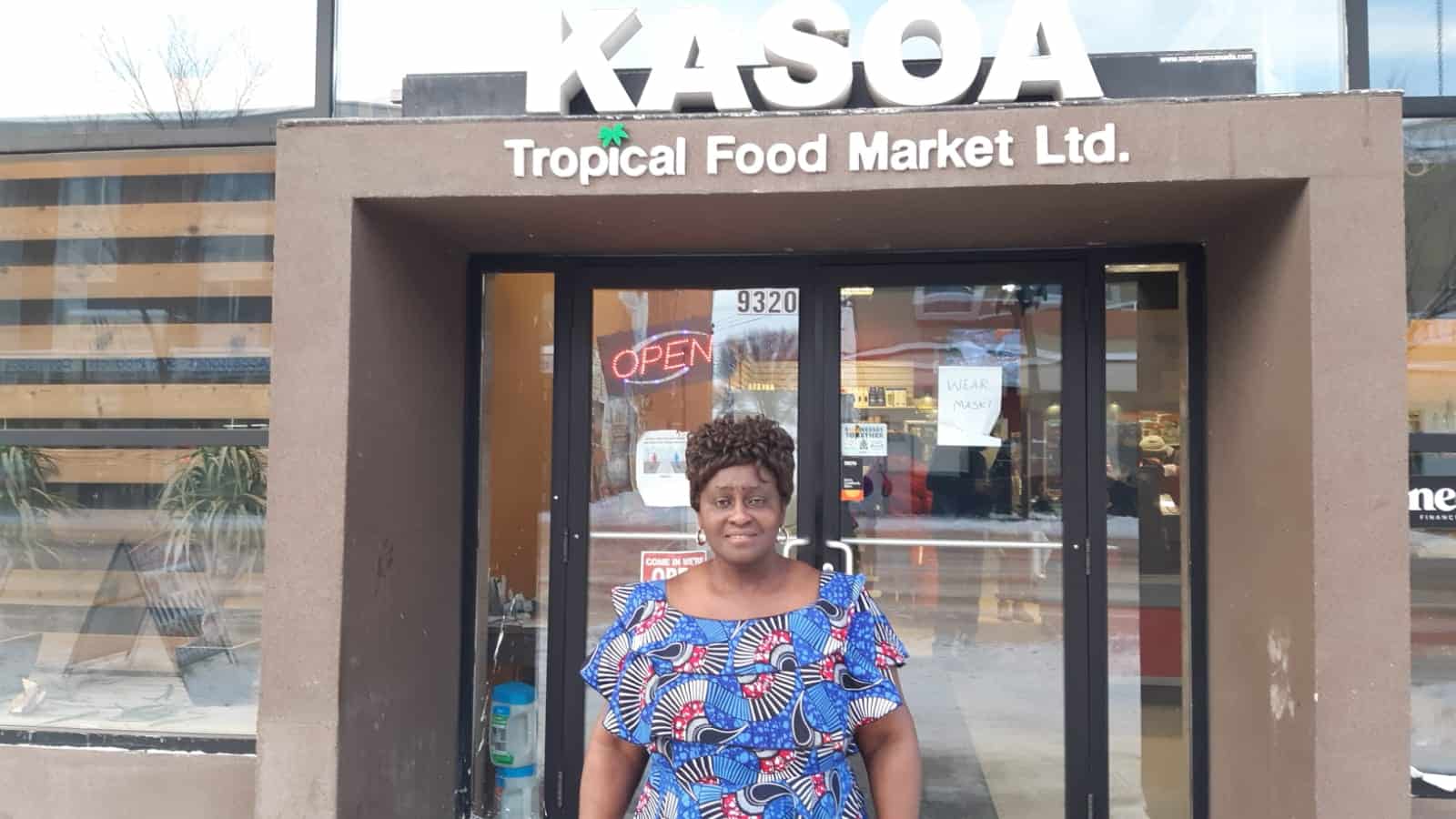Many businesses are struggling
As we continue to navigate through the waves of the pandemic, it’s clear local businesses are affected in different ways.
According to Charity Durowaa, the owner of Kasoa Tropical Food Market, business is calmer than when the pandemic began. She admits it hasn’t been as difficult for her business compared to other sectors because regardless of the circumstances in the economy, food is a necessity.
Kasoa Tropical Food Market has been open since March 7, 2006. The decision to start this business was based on the need to fill an existing gap.
“When I came to Edmonton, I realized that there was not a lot of African and Caribbean goods,” says Durowaa.
The idea to offer Caribbean and African food is proving to be a good one. At the beginning of the pandemic, sales increased rather than decreased. “Business was doing well because people didn’t know what would happen, which led to stocking up on groceries. We are able to keep the business because we followed the protocol, but now people have gotten accustomed to the pandemic so business has become normal.”
“I follow the [health protocols] and do things like I normally did [before the pandemic]. People had to buy food for the family, so business has not changed much,” says Durowaa.
Laura Truong, co-owner of T&D Vietnamese Noodle House, says her business has been facing challenges. “We have been open since 2015. I’m passionate about all things service. I love the restaurant industry and helping people,” says Truong.
To manoeuvre through the difficult times, the owners have demonstrated creativity.
“I had a mini pop-up art show I held in front of the restaurant, due to COVID. It was a success! I sold most of my paintings and decided to start my website online www.deliverthestars.com to share my passion for art. Secondly, I built my own gym above the restaurant and started focusing and building my personal training clients. I am limited on time and will train my clients before or after the restaurant opens. Now, going into another year of COVID, I had to diversify another time. I may be leasing the space in the front to another company and will only be focusing on take out and delivery with SkipTheDishes and Uber Eats,” says Truong.
Truong adds, “I had to let all the staff go, including kitchen staff. My mother and I are the only workers at the moment and that has helped us to sustain. This past year has been more of a struggle. I will be decreasing my hours of operation in the near future to 4-8 p.m. I’m undecided when that will take effect as I’m currently looking to find another full-time position.”
Shortly after this interview, Truong says they have decided to close permanently.
Christy Morin, general manager of The Carrot Coffeehouse, says they also diversified.
“We are able to continue on and have our doors open, but it is a real challenge. The Carrot Coffeehouse is a great place to have a cup of coffee. We also have a retail store that has local artisan wares and a monthly art gallery. Curbside pick up for coffee is also available and live performances on Saturday nights,” states Morin.
“I think over Christmas, people in the community were looking for a way to support our local artisans and we are grateful. We only take 20 per cent of the fees and the rest goes to the artisans. Business has been down 700 per cent since COVID-19; we are basically trying to keep alive everyday, encouraging curbside, and doing all our food in house to keep costs down.”
As the pandemic continues, local businesses’ resilience, creativity, and flexibility is being tested beyond what could have ever been imagined.







